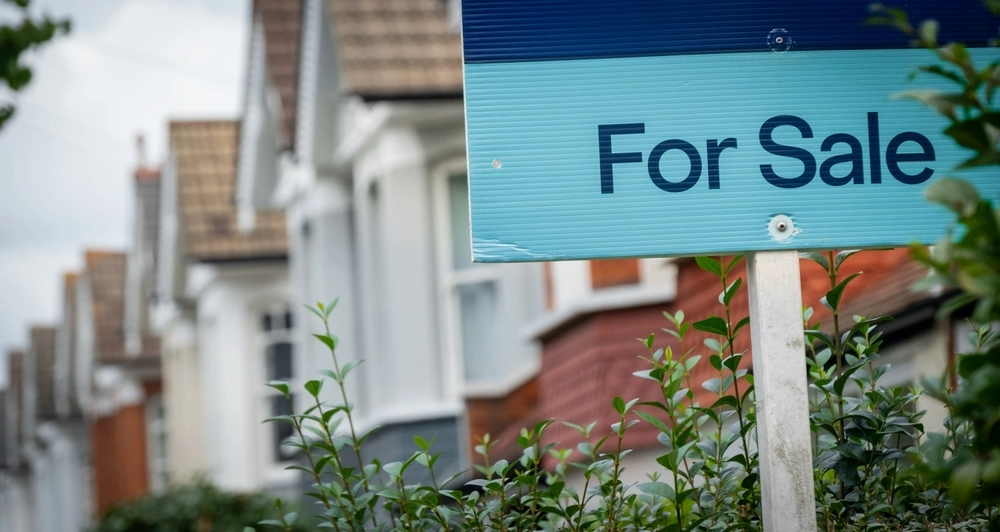Holiday booking scams rose 41% between April 2022 and April 2023.
Figures from Action Fraud show that almost 6,500 cases of holiday booking scams were reported during this period. On average, each victim lost £2,372.
We’re examining what’s involved in holiday booking and travel scams that you need to be aware of. We’ve also got some top tips from our in-house expert to help you protect yourself.
Booking scams
Booking scams involve fraudsters using fake travel websites to steal your money.
In a booking scam, you’ll see hotels, villas, flights, and even package holidays advertised at much cheaper prices than usual. Often, the advert will claim the deal is because of a last-minute cancellation. These adverts are typically on social media. You may see them at the top of search engine results (like Google), too. Some scammers may claim to be promoting deals from legitimate travel agents. Others may go so far as to impersonate them.
The advert will connect you to a convincing-looking but fake website, where you’ll make your booking and pay for it. But when you arrive at the airport, or worse, at your destination, you’ll find there’s no record of your booking. In some cases, the accommodation you’ve booked doesn’t even exist.
Fake accommodation listings
A fake accommodation listing scam is pretty much what its name suggests. Fraudsters create fake listings on popular holiday booking sites like Airbnb, Vrbo, and Booking.com. These sites (and others) are brilliant at finding scam listings and blocking fraudsters. But you may still occasionally come across one.
In this type of scam, fraudsters offer what looks like high-quality accommodation at a much lower price than other properties in the area. You’ll often be asked to pay the host directly by bank transfer rather than through the booking site.
When you arrive, you may find that the accommodation has no record of your booking. Alternatively, you could have arrived at somebody’s private home (not a holiday rental). Or, you may find that the property simply doesn’t exist.
GHIC scams
Global Health Insurance Card (GHIC) scams revolve around charging you for something you can get for free. GHICs give you access to emergency healthcare abroad at the same price a local would pay. They’re free when you apply through the official website. But scammers will attempt to charge you for them.
In a GHIC scam, the fraudster may claim that paying a fee to them will fast-track your application. But there is no way to fast-track GHIC applications.
In some scams, you will still receive the GHIC and will just have paid for it unnecessarily. In others, the scammer takes the money and the personal information you’ve given them and vanishes, leaving you out of pocket and without the GHIC you need. They can then use your details to impersonate you and commit further fraud.
Visa application scams
In a visa application scam, fraudsters impersonate government agencies and visa service providers to steal your money.
Many scammers claim to be able to fast-track your visa or visa waiver application. But, when you apply through their websites, you’ll be charged a higher price than the real cost of the documents you need. And it’s unlikely you’ll ever receive them.
How to protect yourself from holiday scams
We spoke to our in-house fraud expert, Ben Fleming, about the danger of holiday scams. He shared his top tips to keep yourself safe from scams when booking a holiday:
If it looks too good to be true, it probably is
If there was a golden rule of scam-spotting, it would probably be this: If a deal looks too good to be true, then it more than likely is too good to be true. Unusually low prices for luxury accommodation, offers of fast-tracked visa applications, and incredibly cheap flight deals should all raise red flags.
Go direct
If you want to book a holiday deal you’ve seen advertised on social media, don’t go through the advert. Genuine deals will be available on the travel agent’s or booking company’s website if you go there directly. If you can’t find it, contact their customer service team to ask, using details you can find on their website. In the event that they don’t know about it either, it’s probably a scam.
Pay with plastic
Be wary of anyone asking you to pay for anything to do with your holiday by bank or money transfer. Particularly in fake accommodation scams, scammers will often ask you to wire them the money to pay for your booking. They may say it’s because it’s cheaper for them than going through the booking site’s system.
By paying with a credit or even a debit card, you’re better protected and may be able to get more help to recover your money if you do pay money to a scammer.
Watch out for ATOL and ABTA logos
ATOL is the scheme that financially protects consumers if their travel provider goes into administration. ABTA is the trade association for the UK travel industry. Seeing their logos on a travel company’s website can be a reassuring sign you’re booking with someone genuine. But scammers can use these logos and a company’s registration numbers fraudulently.
So, always double check a company’s registration numbers on the ATOL and ABTA websites to make sure they belong to the company you’re dealing with.
Double-check website addresses
Whether you’re booking a holiday or applying for a visa, double-check the address of the website you’re applying through. Remember, the top few options on Google are usually adverts, and this is where scams are most likely to appear. For GHICs, you can apply through the NHS website. For visas, you can usually find the official website you need for your destination by checking the foreign travel advice section of the UK government website.
Reporting a holiday scam
If you come across any kind of holiday scam, it’s important that you report it to:
- The social media networks or booking sites you see scam adverts or accommodation listings on.
- ABTA and ATOL, if you find a scammer fraudulently using another company’s registration numbers.
- Trading Standards, if a company is fraudulently using ABTA or ATOL logos.
- The NHS Counter Fraud Authority, if you come across a GHIC scam.
- Action Fraud, so that they can investigate accordingly.
And, if you’ve been the victim of a scam, report it to:
- Action Fraud.
- Your bank or credit card company.
- The police on 101. If you or someone you know is in immediate danger, call 999.
Sources
https://www.actionfraud.police.uk/news/dont-get-burnt-before-youre-on-the-beach-action-fraud-reports-over-15m-lost-to-holiday-fraud-in-the-past-year
![Email icon]()
Become a money maestro!
Sign up for tips on how to improve your credit score, offers and deals to help you save money, exclusive competitions and exciting products!









